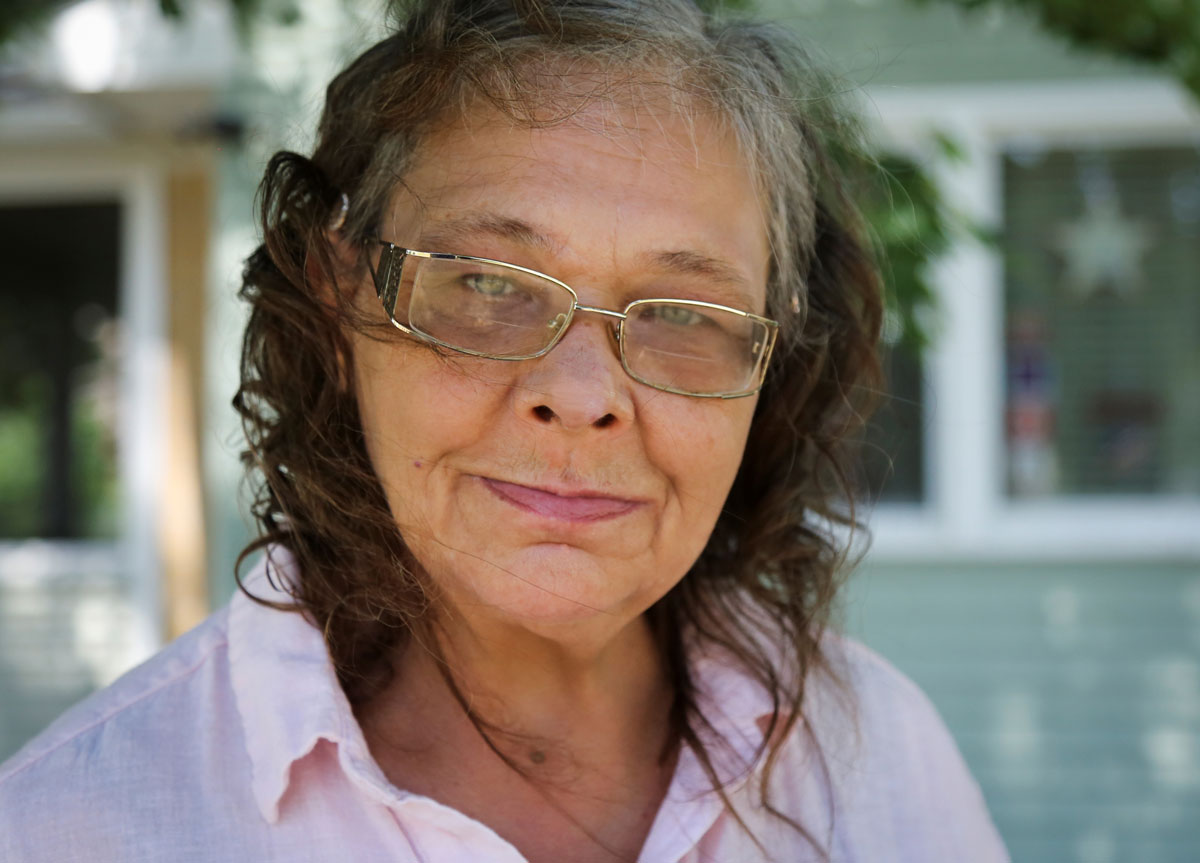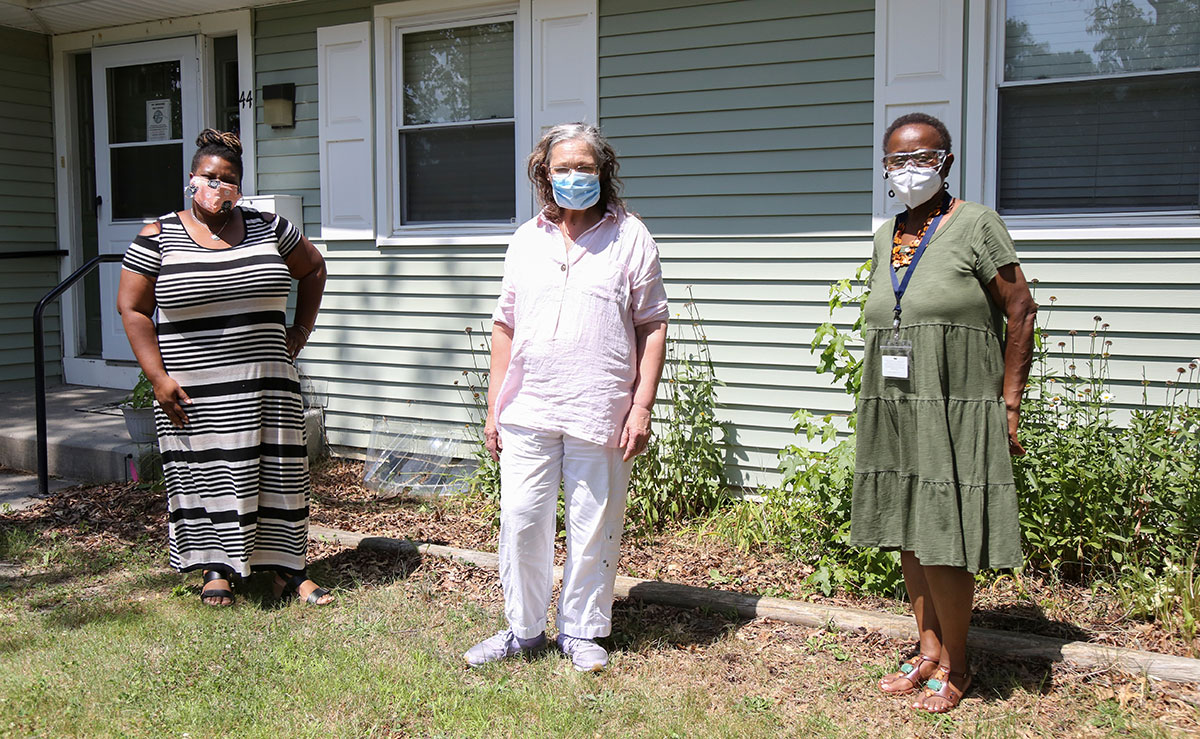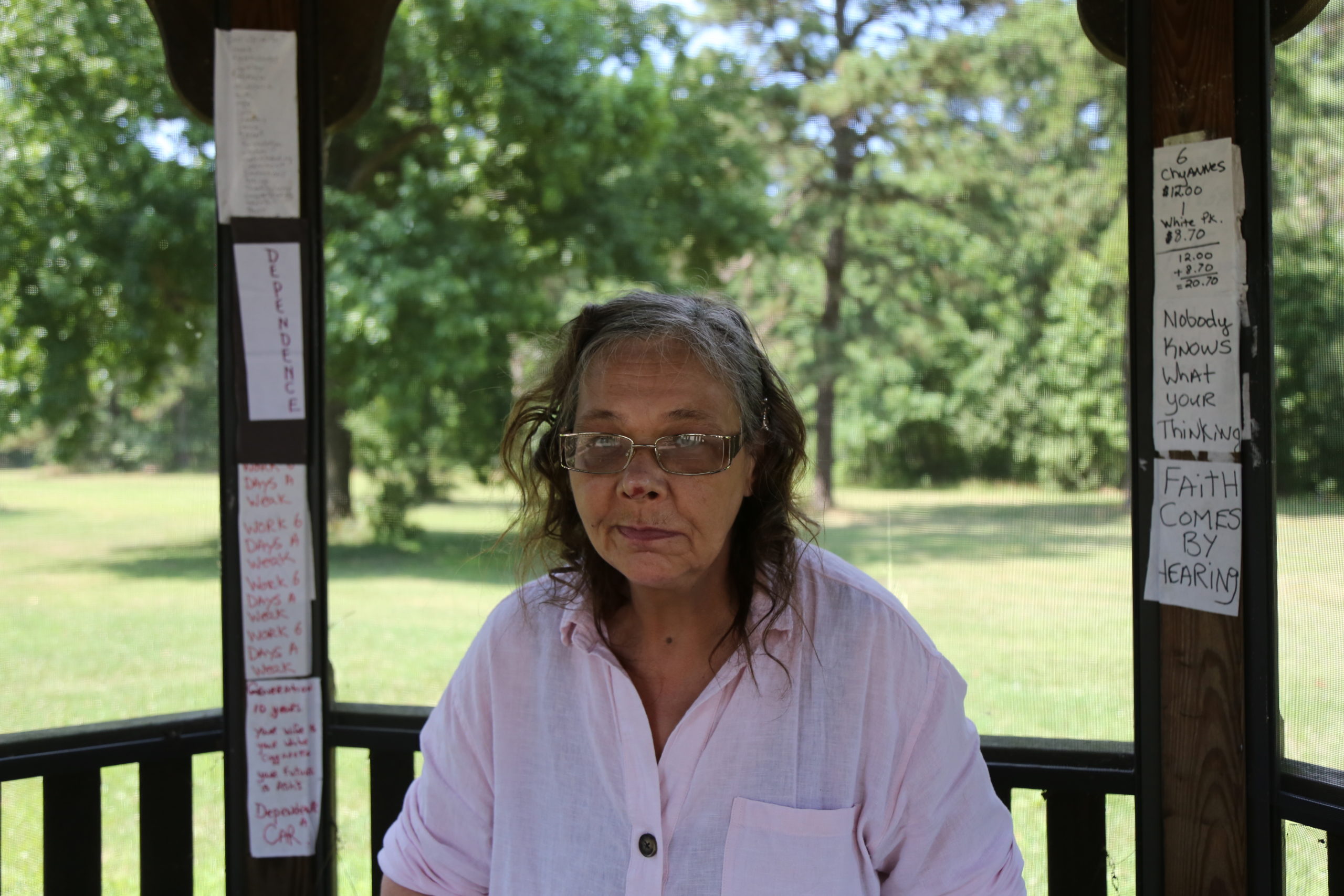Group homes help residents transition to independent living
 Theresa Geslicki likes to clean. Stop by her home in South Jersey, and you’ll likely find her with a rag or trash bag in hand, polishing and picking up until everything sparkles.
Theresa Geslicki likes to clean. Stop by her home in South Jersey, and you’ll likely find her with a rag or trash bag in hand, polishing and picking up until everything sparkles.
“She’s very helpful. Sometimes we got to stop her, or she will help you from one end of the house to the other end,” Rose Denny laughed.
Theresa lives in a behavioral health group home on the grounds of Ancora State Hospital. Denny is her house manager there.
The home is one of seven that Catholic Charities, Diocese of Trenton runs at Ancora for 39 people with severe mental illness transitioning to independent living. The homes are part of a program called Intensive Residential Program-South, and that’s part of a network of 17 group homes that Catholic Charities operates throughout Central Jersey. Altogether, they serve close to 90 people.
The homes have differing levels of supervision, as residents work toward independent living. (The group homes at Ancora have 24/7 supervision.) Staff teach residents life skills like cooking, cleaning, scheduling doctor’s appointments, grocery shopping, navigating public transit, and more and accompany them into the community for recreational outings and errands. Residents attend daily counseling sessions and support groups to learn about their mental illnesses and how to cope with their symptoms. Staff also provides crisis intervention services.
Operational through the pandemic
The ongoing pandemic has created some operational challenges, with statewide stay-at-home orders prompting staff to get creative to meet residents’ needs. Counseling and support groups moved online, while outings became football tosses and sidewalk strolls on Ancora’s grounds instead of trips into the community. Staff enlisted residents in their own protection, helping them make their own face masks and adopting more rigorous cleaning practices. A local school also enlisted group home residents to make greeting cards teachers gave to students as a sendoff to summer.
Creativity a coping strategy
Such creative initiatives are something Theresa got fully behind.
She loves drawing, painting ceramics, and anything artsy. She also enjoys crossword puzzles and arithmetic.
 “I’m doing whatever I can to get well,” said Theresa, 64, who has lived at a group home since 2008, after spending some time at Ancora State Hospital. “I corrected my bad behaviors. I learned to become more reliable.”
“I’m doing whatever I can to get well,” said Theresa, 64, who has lived at a group home since 2008, after spending some time at Ancora State Hospital. “I corrected my bad behaviors. I learned to become more reliable.”
Program Director Heather Alexander has known Theresa for 12 years and seen her “blossom” over that time.
“She’s incredibly creative and loves to share that with other people, and she uses her creativity to help her cope with the symptoms of her mental illness,” said Alexander, a licensed professional counselor. “She’s a beautiful, bright human being.”
Theresa loves animals and keeps a few fish as pets. Before the pandemic, visited a local animal shelter weekly to help care for the dogs. That’s her dream job. She hopes she’ll be able to live on her own again some day – with lots of pets.
“I came a long way,” Theresa said.
With a smile, Denny nodded and told her: “I’m so proud of you.”
Subscribe for more news
For more information about the Intensive Residential Program South, contact Director Heather Alexander at (609) 561-7670 or halexander@cctrenton.org; or Dana DiFilippo, Catholic Charities communications, at ddifilippo@cctrenton.org or (215) 756-6277 (cell). This story appeared in our Fall 2020 Spirit newsletter. To see the full newsletter, both current and past issues, click here.
To subscribe to our blog posts and news releases, fill out the fields below.
